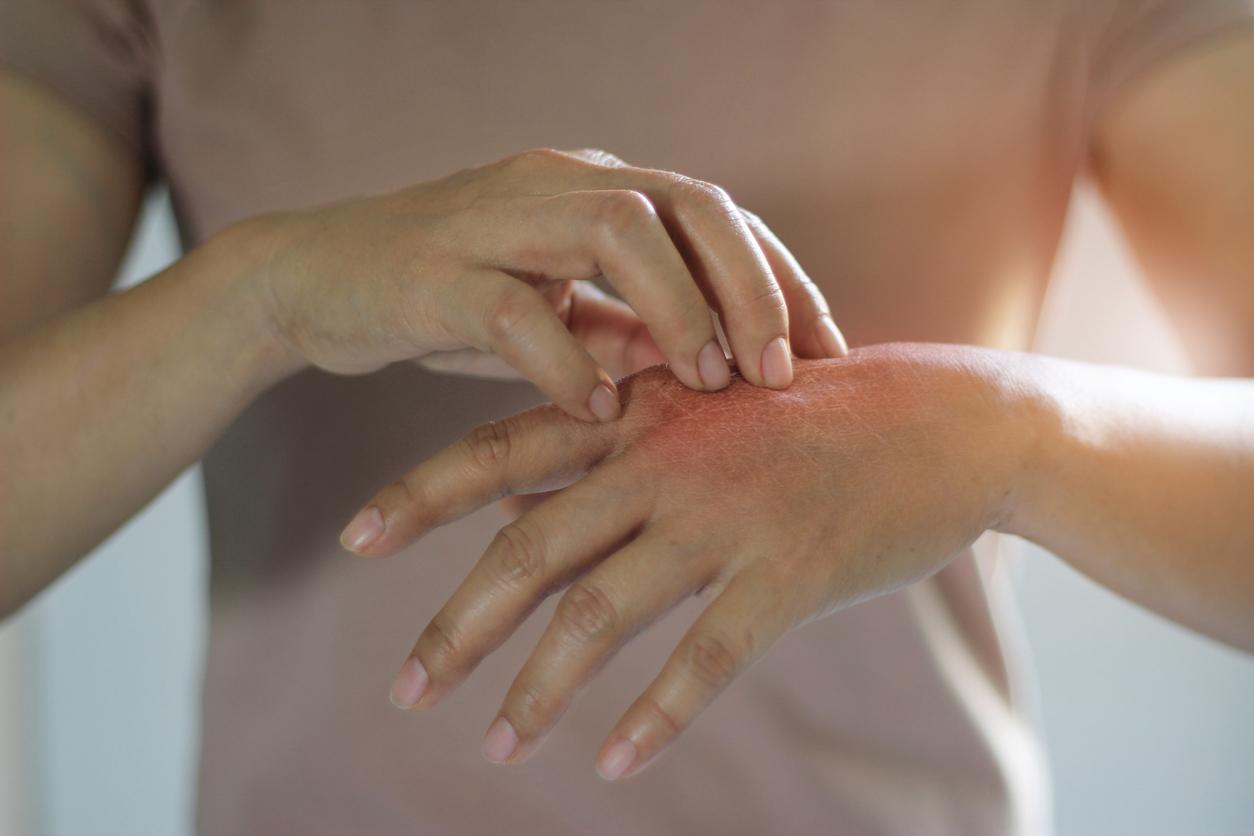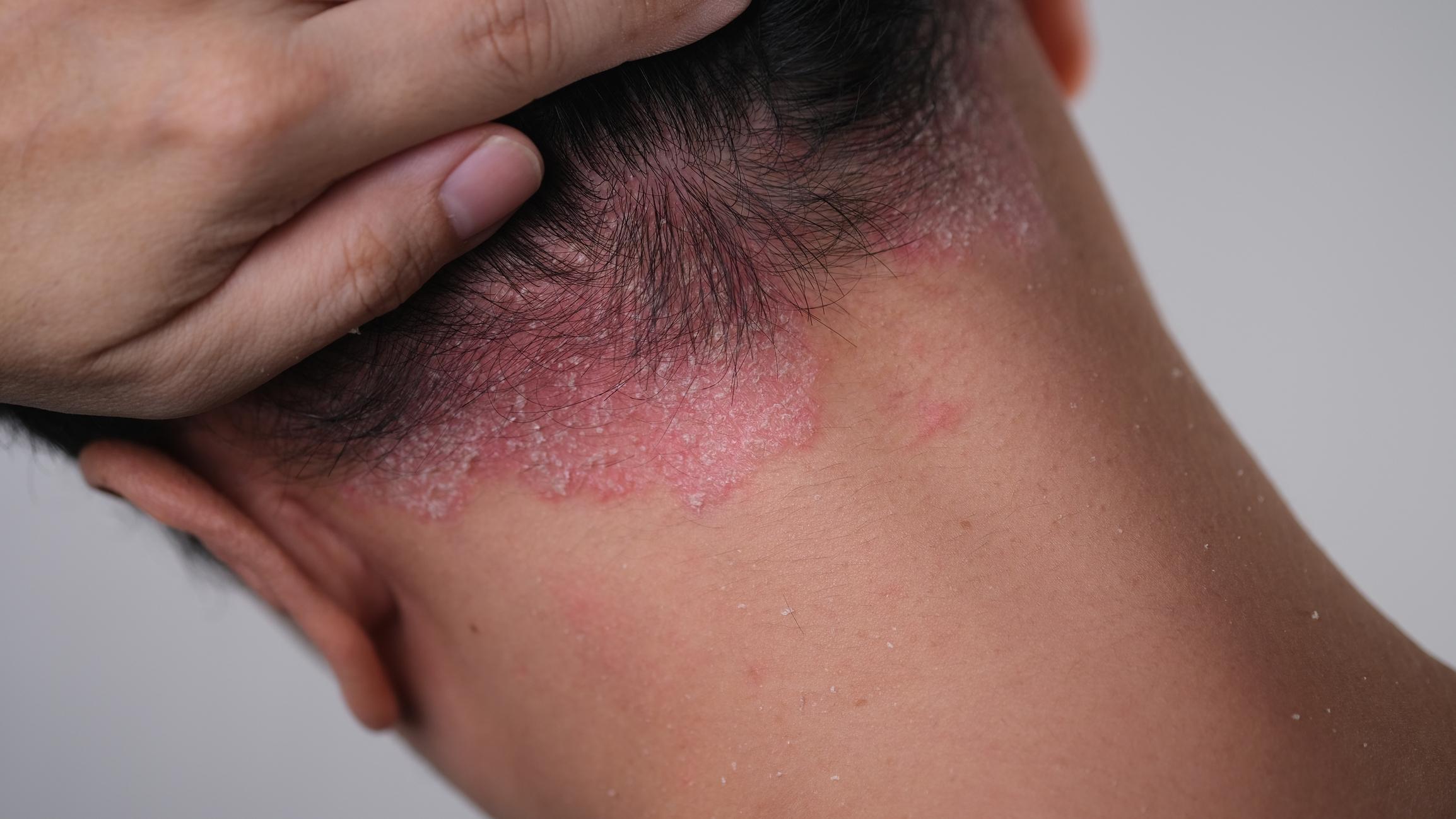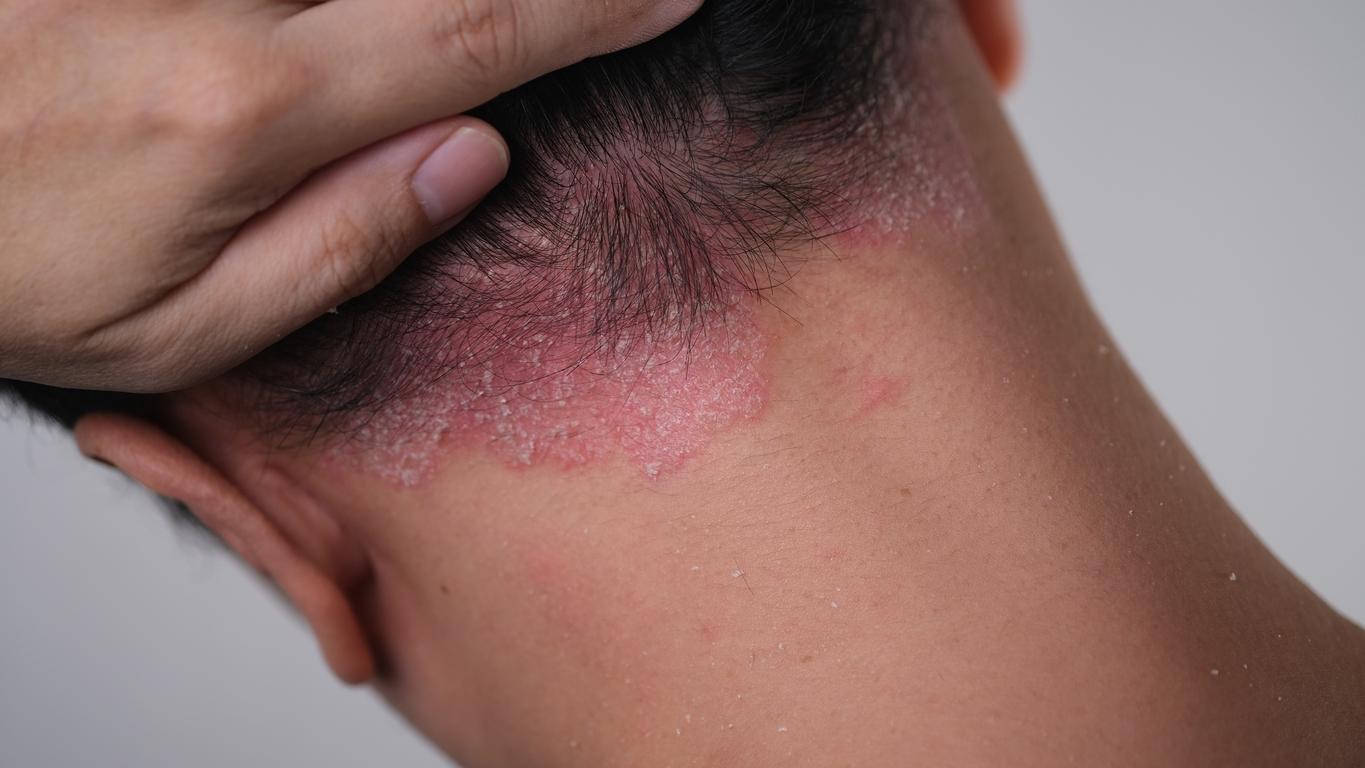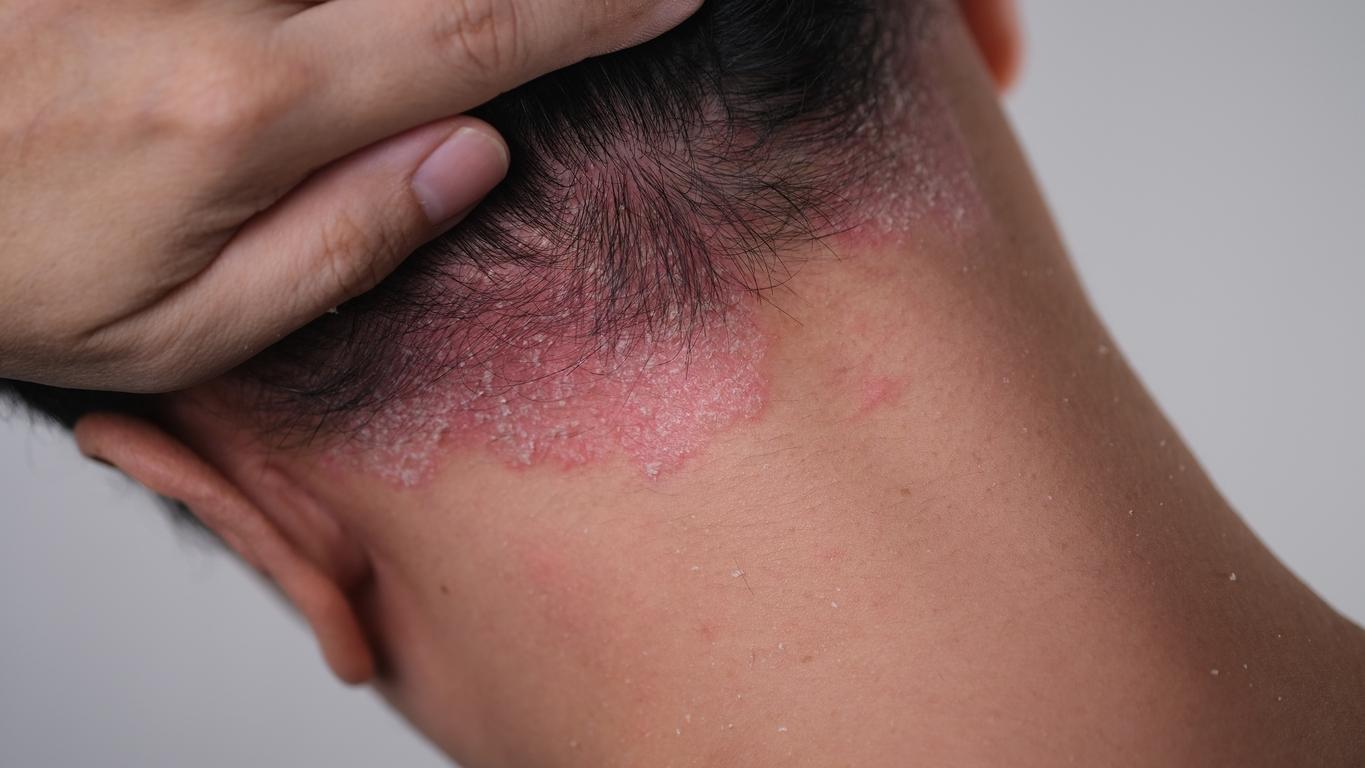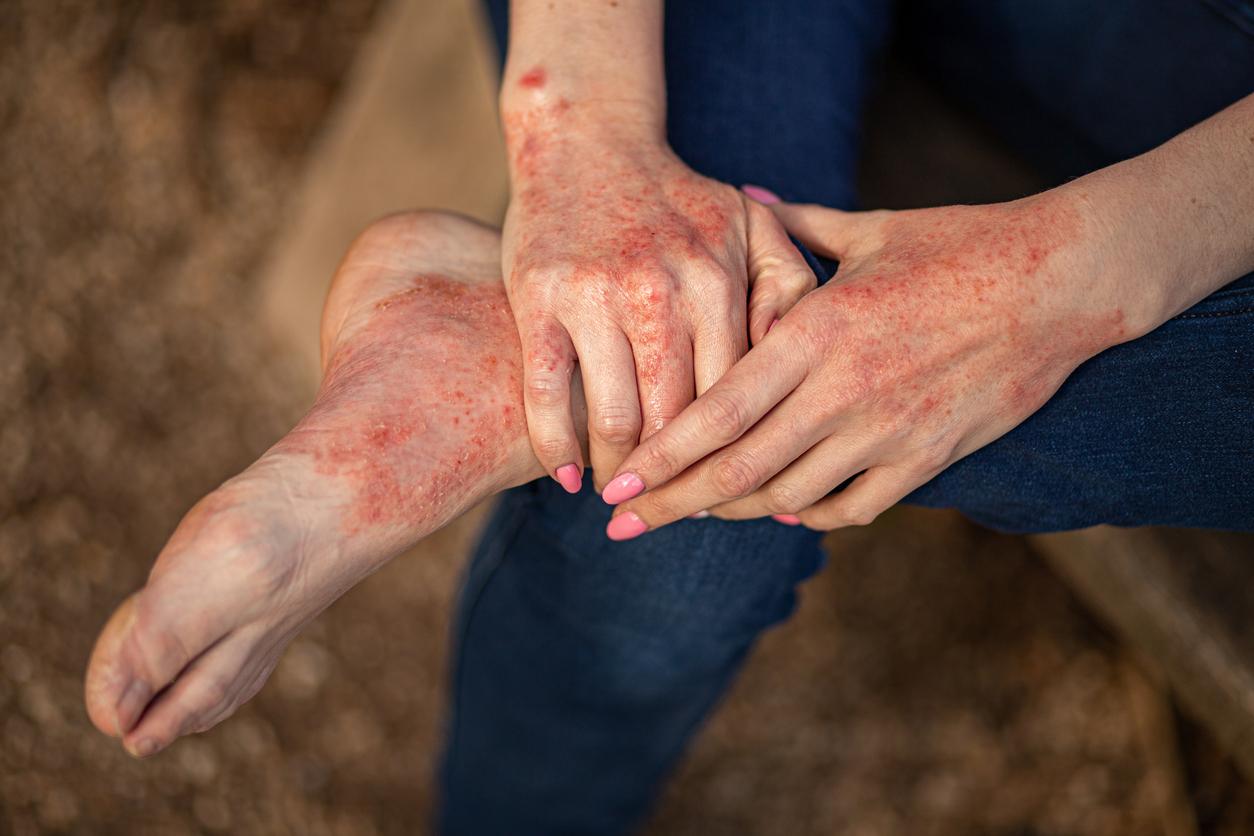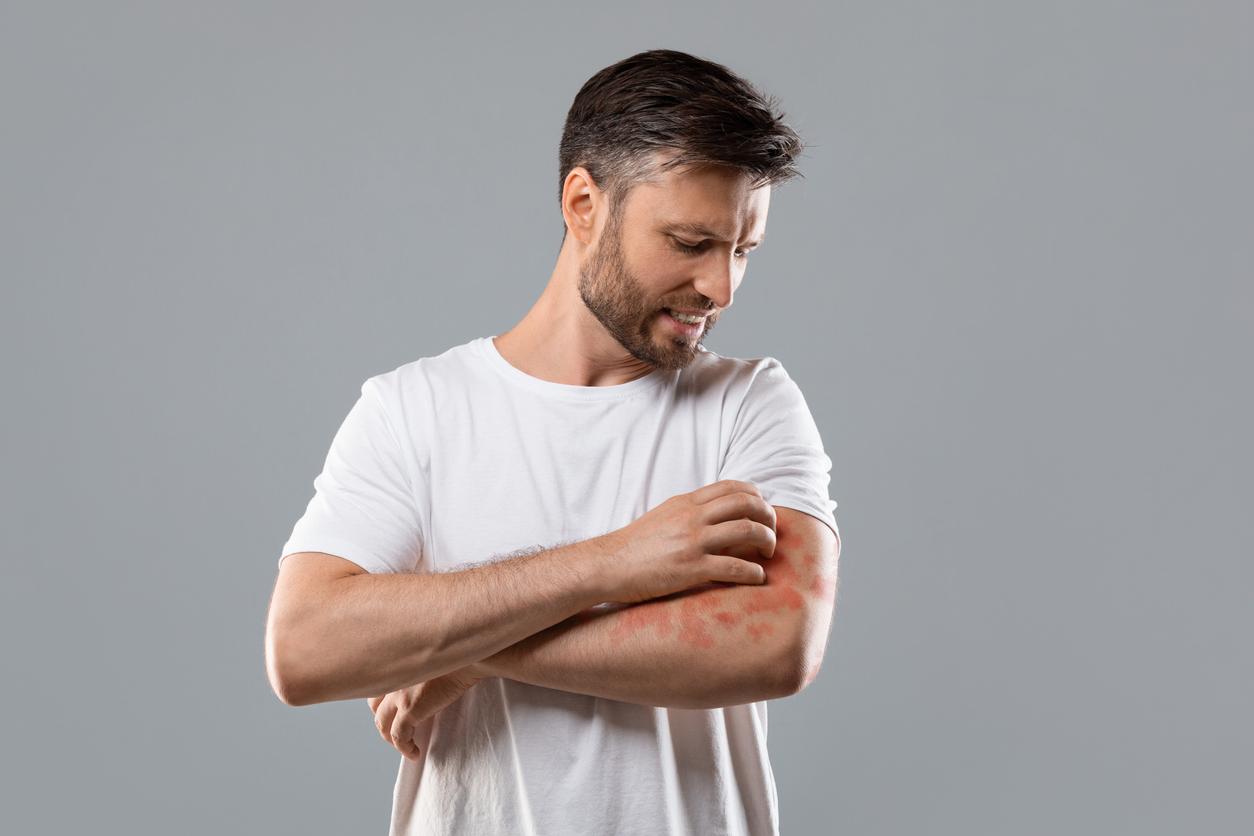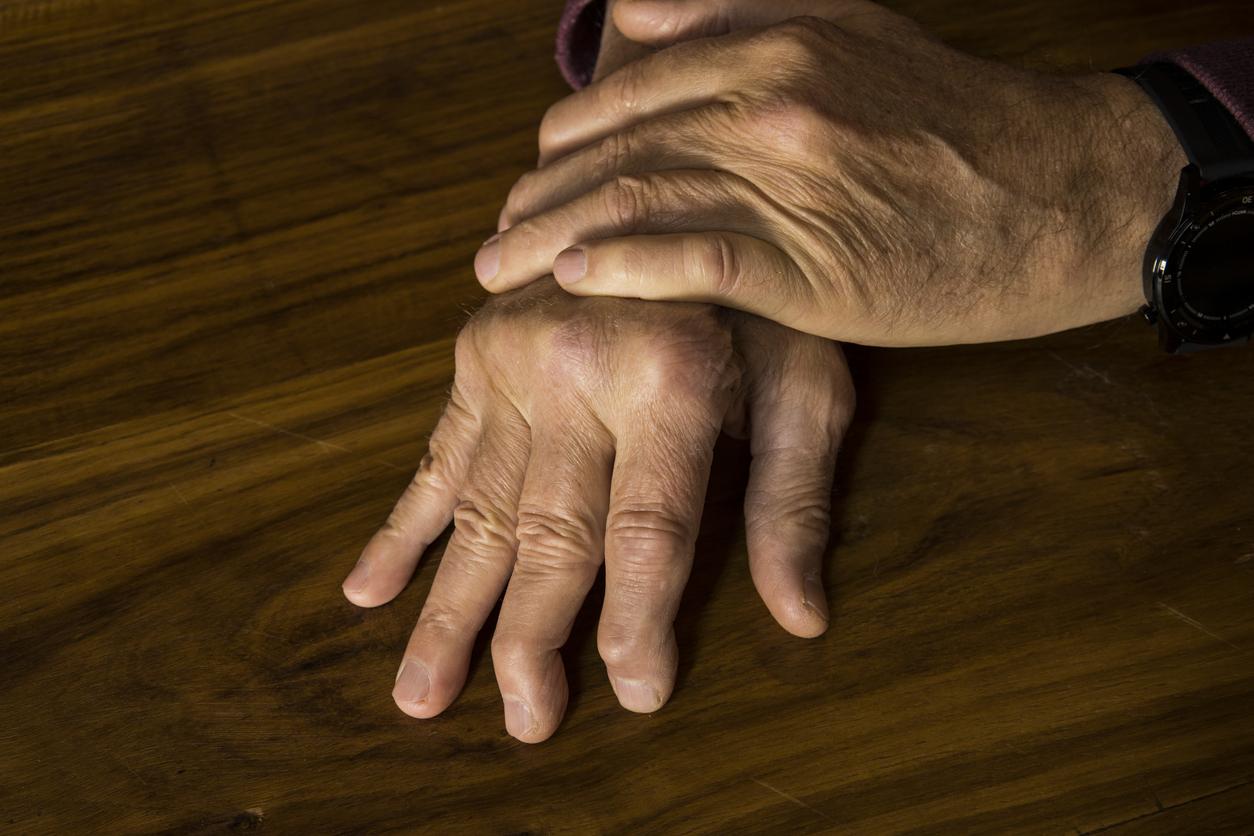While 2.5 million people in France live with psoriasis, many prejudices persist, in particular on the contagiousness or the lack of hygiene of the patients.

“I can’t stand having to constantly justify myself to my friends who constantly blame my psoriasis on stress… You’re too nervous, calm down a bit, you will have less psoriasis for sure! “. Like Laura 36, many people with the disease suffer from the gaze of others on a daily basis, especially because of the prejudices that still surround psoriatic disease.
When we question the French, 82% of them nevertheless give a correct definition and recognize that it is an inflammatory disease. However, according to the latest survey carried out by the France Psoriasis association, 32% have an erroneous image and 4 in 10 French people say they prefer to keep their distance from patients. On the occasion of the 10th world day of fight against this disease, the editorial staff of Pourquoi Docteur wanted to take stock of this disease, which concerns 2.5 million French people.
Is Psoriasis a Contagious Disease?
FALSE / Psoriasis is not a contagious disease. People who have it cannot pass it on to others, not through touch, clothing, or any other type of physical contact. There is no virus or bacteria at the origin of this pathology. Although the precise causes of psoriasis are still unclear today, this chronic inflammatory skin disease is believed to be partly genetic. It is also favored by environmental factors, such as sensitivity to certain tissues. Psoriasis causes excessive proliferation of skin cells, keratinocytes, caused by an alteration in the interaction between the cells of the epidermis and those of the dermis. Psoriasis is due to a too rapid renewal of the cells of the epidermis, but in no way to a lack of hygiene.
Psoriasis is linked to stress and psychological problems?
FALSE / This is not a psychological illness. It usually occurs often following a strong emotion (positive or negative), but this is not the cause of its appearance. Those affected have often had the experience, following a rupture or a traumatic accident for example, of an outbreak of psoriasis. But specialists confirm that stress alone cannot explain the onset of psoriasis. On the other hand, conversely the disease in itself can be a source of psychological disorders. Especially when the plaques affect the face, the disease is most often very badly experienced by patients. The prejudices and the gaze of others weaken those affected and can lead to the onset of anxiety, insomnia, sexual difficulties or even more or less severe depression.
Can the sun trigger psoriasis attacks?
FALSE / For 90% of patients, short and regular exposures to the sun (with sun protection) can limit a psoriasis attack. However, these sunbathing areas must respect very specific conditions. Specialists do not recommend them in times of crisis and, of course, they should be moderate and always gradual, preferably in the early morning or late afternoon. However, beware of sunburn and too much exposure which could, conversely, worsen the symptoms and cause new plaques to appear.
Remission is impossible?
FALSE / Thanks to research, the impact of psoriasis can now be reduced or even disappeared. This is called plaque whitening, not healing, which has the effect of reducing or eliminating itching and scaling. Two phases should be taken into consideration in the treatment of the disease: the “attack” phase which aims to reduce and eliminate existing plaques and the “maintenance” phase which aims to prevent the appearance of new plaques. New biotherapies are expected very soon. These will be molecules prescribed by subcutaneous injection, which appear to be highly effective and very rapid in action.
Psoriasis only affects the outer parts of the skin?
FALSE / Current studies seem to show that psoriasis, in its extended form, is associated with cardiovascular risk factors, such as obesity, dyslipidemias, diabetes, etc. “Global” patient care is therefore required. necessary and it should not be limited to the skin!
Source: Association France Psoriasis
.








